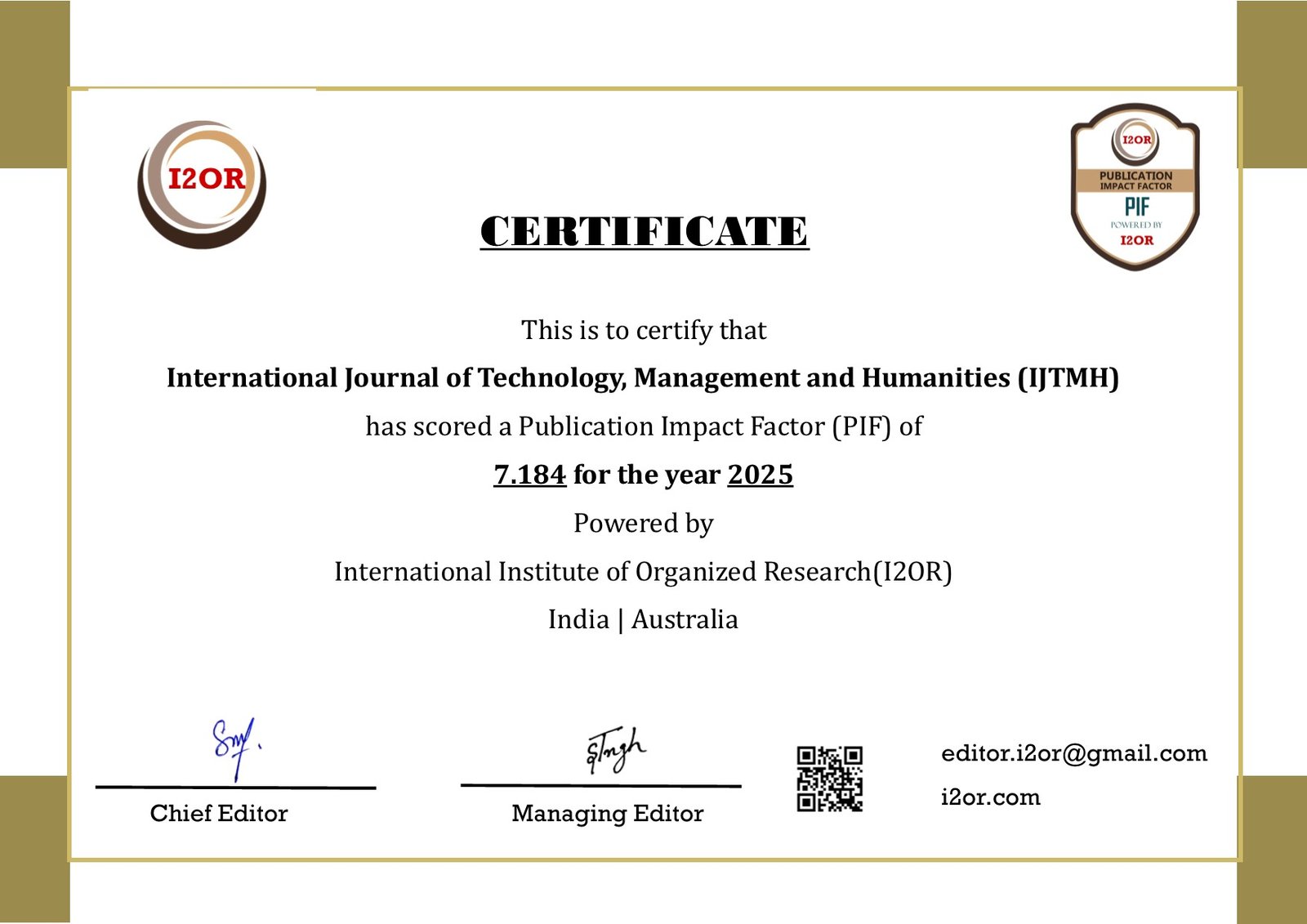Cognitive DevOps: Applying Deep Learning for Intelligent Workflow Orchestration
DOI:
https://doi.org/10.21590/ijtmh.11.01.04Keywords:
Cognitive DevOps, Deep Learning, Transformers, LSTM, Workflow Orchestration, CI/CD, AIOps, Predictive Automation, Intelligent Systems, DevOps IntelligenceAbstract
Cognitive DevOps is an emerging paradigm that fuses deep learning and AI-driven methodologies into the fabric of DevOps pipelines to enable intelligent orchestration, self-optimization, and adaptive learning. As modern software systems grow in scale and complexity driven by microservices, cloud-native deployments, and continuous delivery the limitations of rule-based, reactive automation become increasingly evident. To sustain agility and reliability in such environments, proactive and context-aware automation is essential.
This paper investigates how deep learning models particularly sequence-based architectures such as Long Short-Term Memory (LSTM) networks and Transformer models can be operationalized within CI/CD workflows to dynamically monitor, predict, and optimize pipeline activities. Leveraging a corpus of historical pipeline executions, telemetry data, and failure logs, we trained predictive models capable of estimating task durations, forecasting bottlenecks, and anticipating resource contention events. These insights inform a cognitive orchestration engine that autonomously adapts execution sequences, reallocates infrastructure resources, and triggers preemptive remediation strategies.
Our implementation demonstrates substantial improvements across key operational metrics, including reduced pipeline execution time, lower failure rates, and decreased human intervention. Furthermore, the system supports continuous learning by incorporating a feedback loop that fine-tunes model performance post-deployment, ensuring adaptability to evolving workloads.
We argue that Cognitive DevOps marks a transformative shift from static automation to intelligent, self-governing software delivery. By embedding deep learning at the orchestration layer, DevOps teams can achieve higher resilience, efficiency, and scalability. This research contributes a novel architectural framework, implementation methodology, and empirical validation for AI-driven workflow orchestration, laying the foundation for future advances in autonomous software engineering.







